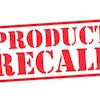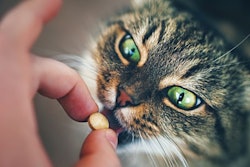
The Association of American Feed Control Officials (AAFCO) “mid-year” 2019 meeting was held January 21–23 in Savannah, Georgia, USA. The absence of representation from the U.S. Food and Drug Administration (FDA) due to the federal government shutdown was duly noted. Notwithstanding the need to table a few items pending FDA input, work proceeded as usual.
Relevant discussions: ODI, GRAS, workshops and amendments
A major announcement made in the opening session was that the Online Database of Ingredients (ODI) is now fully functional and accessible by anyone who has a subscription to the online version of the 2019 AAFCO Official Publication. Among its functions is the ability to scan a label's ingredient list and flag those ingredients and terms that are not in compliance with AAFCO definitions. Details on this new feature will be discussed in the April 2019 column.
The regulatory status of Generally Recognized as Safe (GRAS) substances for which a notice is not filed with FDA was discussed by both the Current Issues and Outreach Committee and the Ingredient Definitions Committee. Coined as "Independent Conclusions of GRAS" (ICG) by AAFCO, there are concerns by some state feed control officials as to the rigor of the self-determination process; hence AAFCO is considering the imposition of additional scrutiny prior to acceptance for use of these substances in animal feed. This issue will be the topic of a future column, as well.
The Pet Food Committee (PFC) announced that it will hold a one-day Pet Food Labeling Workshop in Kansas City, Missouri, USA, on May 2, 2019, the day after the close of the Petfood Forum. Previous workshops held in conjunction with AAFCO meetings were highly rated by participants. Details and registration information can be found on AAFCO’s website.
A proposed amendment with regards to the nutritional adequacy feeding trial protocols was introduced to PFC. If the amendment is accepted, it would require those dog foods intended for "all lifestages" or "growth" without restriction to small/medium-sized dogs either to be based on appropriate trials using a large size breed, or if a large size breed is not used, for the food to also meet the AAFCO Dog Food Nutrient Profiles maximum limits on calcium and phosphorus levels in accordance with its intended unrestricted use.
Another proposal is intended to address the concern regarding misuse of ingredient percentage claims by imposing a requirement to include any added water in the declared percentage, or alternatively to add a disclaimer that the contribution of added water is not included in the value stated. Both proposals are now open for comment before further action is taken by PFC.
Other news: human grade claims, ingredient definitions, possible new regulations
In other PFC news, the working group on "human grade" claims gave an update. By the August 2019 meeting it should be able to report on its efforts to establish a process whereby the Agricultural Marketing Service (AMS) of the U.S. Department of Agriculture would certify (for a fee) a manufacturer's adherence to AAFCO standards. Also, the Pet Food Labeling Modernization working group reports that it has recently received the results from consumer focus groups on some of the contemplated label changes. This feedback will be considered as the work continues.
Notwithstanding brief discussion within the Ingredient Definitions Committee, no movement has been made in regard to qualification of the term "buffalo" to expressly identify the species (e.g., bison vs. water buffalo) on pet food labels. However, Committee discussion has confirmed comments made in the February 2019 column regarding hemp-derived ingredients; i.e., that no AAFCO Feed Ingredient Definition petitions in support of such ingredients have been submitted to date. It was made known that a Food Additive Petition for hemp seed oil has been filed with FDA and is in the pipeline. However, unless and until that petition is approved, pet foods containing that ingredient would remain subject to enforcement action as adulterated foods and/or adulterated drugs (depending on claims).
The Model Bills and Regulations Committee (MBRC) accepted two amendments to the AAFCO Model Pet Food Regulations as submitted by PFC. The first would require that the words "guaranteed analysis" be used as the header for that section of the label. The second would require "metabolizable energy" or "ME" be expressly included in the calorie content statement to clarify the type of calories the declared values represent. Both matters now move forward to the AAFCO membership for vote at the next meeting.
Also, in its review of AAFCO's Statements for Uniform Interpretation and Policy (also known as SUIP, or "Policy Statements"), MBRC determined that the statement allowing for exemption of rawhides and certain other chew products from some AAFCO labeling and registration requirements would be better suited as a regulation rather than a policy. Draft regulatory verbiage has been submitted to PFC and a new working group has been formed to evaluate the proposed language.


















